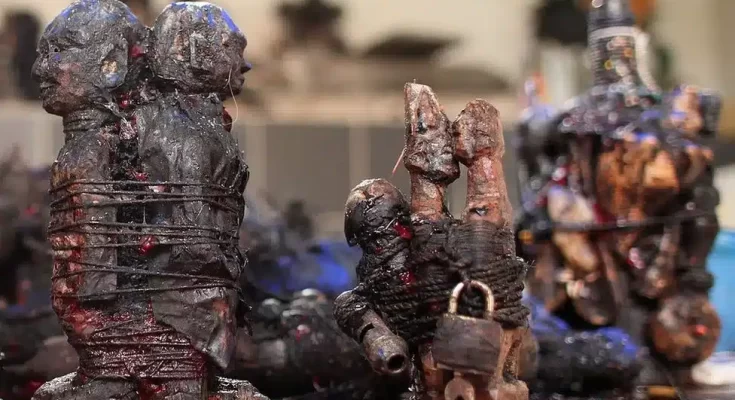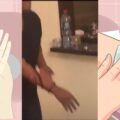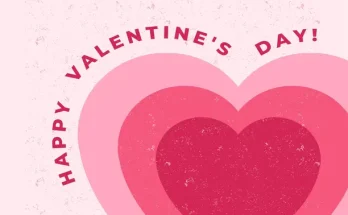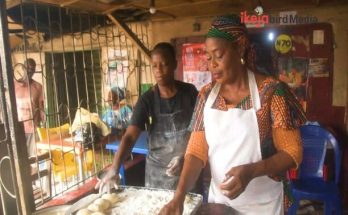By Jimmy
Armed with a sharp knife, and a megaphone and dressed all in black, Gbenga Adewoyin could have passed for a medieval witch hunter, an herbal salesman, or an urban preacher as he walked around in Gbagi market, Ibadan. However, those curious enough to get close to him quickly dispersed when they heard his message.
“Anyone that can provide any evidence for the existence of the supernatural, be it juju or voodoo magic, will be offered 2.5 million naira ($6,000, £4,650),” he announced repeatedly in Yoruba and English.
“I feel horrible to see young people engage in these ritual killings,” Adewoyin told the BBC. If the money ritual worked, we would have seen massive inflation in the economy for the decades that we have believed in it.”
He was in Ibadan, Oyo State, on the second of three planned in-country tours offering 2.5 million naira, crowd-funded via Twitter, to anyone who can publicly demonstrate these juju powers.
“The knife is for anyone who claims their juju makes them blade-proof,” he said.
READ: Young Nigerian lady mistakenly kills friend with knife (Video)
“Of course, Juju works; he doesn’t know what he is saying,” a trader, who lingered with a scowl on his face, said. And while he had in his pocket a small leather pouch containing supposedly magic charms that he said were for protection, he was, however, not interested in publicly demonstrating their powers, not even for $6,000.
Juju magic is simply the type of magic practiced in Africa. It is the belief in mystical powers bestowed by charms, gods, and other deities. However, questioning the existence of supernatural powers is considered taboo in much of Nigerian society. To be openly expressing such thoughts, as Mr. Adewoyin was doing in a market, was risky. He could just as easily be arrested for blasphemy or lynched by an angry mob.
Belief in African traditional religions and juju components is widespread in Nigeria, with many combining them with either Christianity or Islam, according to a 2010 report by the Pew Research Centre. Lots of Nigerians believe that magic charms can allow humans to morph into cats, protect bare skins from sharp blades, and make money appear in a clay pot.
These beliefs are not just held by the uneducated, they exist even at the highest level of Nigeria’s academia.
Dr. Olaleye Kayode, a senior lecturer in African Indigenous Religions at the University of Ibadan, told the BBC that money-making juju rituals, where human body parts mixed with charms result in money spewing out of a pot, really work.
The naira notes that supposedly appear “are gotten by spirits from existing banks”, he told the BBC.
READ: No one should refuse old naira notes as means of payment – CBN
Jude Akanbi, a lecturer at the Crowther Graduate Theological Seminary in Abẹ́òkúta, was also unequivocal about Juju.
“This ability to be able to transform yourself into a cat, to disappear and reappear—these things are possible within the dynamics of traditional African religion. Although [it] sounds illogical, like old wives’ tales, from what we have seen and heard, these things are possible,” he said.
And while everything does sound like a fable, there is no disputing that strange things do happen. There are also several accounts of people who have come into contact with the supernatural in one way or another.
Go to iyana ipaja market by 2:00pm
— JAM£$ ⚜️ (@orioninc_ng) July 10, 2023
Drop something on the floor and bend straight low to pick it.. then look through your legs (like.. looking upside down)
Whatever you see, please don’t make a sound and act normal, then leave the atmosphere as quick as possible 🍀 https://t.co/qqP5pbbhng
So, is juju real? Well, only those who have actually come in contact with the supernatural can say. As for those who haven’t, well… all they can do is just keep on wondering.









